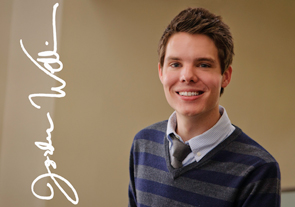 When I was in sixth grade, there was a popular catchphrase that nearly all the girls in my class used. Whenever someone (usually a boy) asked them a stupid question, the girls would pull out their oh-so-cool signature response: “Talk to the hand.”
When I was in sixth grade, there was a popular catchphrase that nearly all the girls in my class used. Whenever someone (usually a boy) asked them a stupid question, the girls would pull out their oh-so-cool signature response: “Talk to the hand.”
Looking back, this phrase sounds ridiculous and fairly idiotic. But oddly, “talk to the hand” has achieved a comeback of sorts in the past few weeks, though not from a sixth-grade girl.
Quite the opposite, actually. While speaking at the Republican National Convention in Tampa, Fla., Clint Eastwood, the 82-year-old actor and director, came up with his own version of the once-popular insult: “Talk to the chair.”
For nearly 12 minutes, the Oscar-winner talked to an empty chair occupied by an invisible President Obama.
Actually, “talk” is too strong a word. The speech was more like a random conglomeration of rambling, muttering and growling.
Most people would agree that Eastwood is a great actor and director. He’s won four Academy Awards and has been nominated for countless others. But politics is not exactly his area of expertise.
As insane as Eastwood’s speech struck me, things didn’t get much better on the Democrats’ end of things.
Instead of showcasing a bona fide Hollywood icon, the Democratic National Convention invited young actresses to introduce President Obama before his big speech at the DNC last week. Never mind that Scarlett Johansson, Kerry Washington and Eva Longoria are movie stars with no political experience. Never mind that the time they occupied could have been used to feature a real politician or real American heroes—say military personnel, for instance. What mattered most was attracting young voters and driving up television ratings.
If anything, the two political conventions reminded us of this: we live in the age of the celebrity. We can’t buy shampoo unless an actress recommends it. We can’t get a prescription unless Mr. Hollywood approves it first. And we can’t vote for a political candidate unless he or she is endorsed by a household name.
It’s a trend that’s been ongoing since 1956, when Nat King Cole became the first celebrity to speak in support of a presidential candidate (Eisenhower) at a national political convention, setting a precedent for celebrity involvement at future conventions.
But the problem isn’t just with the celebrities themselves, though that’s often a huge part of it. Perhaps the most disturbing aspect is the obsession our culture places on A-list celebrities who have no business speaking for a cause in which they have little experience or knowledge.
Sure, there are the rare exceptions of Hollywood elite who have successfully made the leap from A-list celebrity to A-list politician (Ronald Reagan most notably, Arnold Schwarzenegger least notably). Eastwood even served as mayor of the small town of Carmel, Calif., for a brief stint in the ’80s.
Still, how refreshing would it be if actors stuck to acting and politicians stuck to politicking, allowing Washington and Hollywood to exist in their separate spheres? It’s wistful thinking on my part, I know. But both places are bad enough on their own. And when they come together, matters are only worsened.
Ultimately, it took a tirade spoken to an invisible man in a chair to bring the matter of celebrity credibility to light again. And it’ll be hard for anyone to top an act like Eastwood’s for a while.
But then again, this is Hollywood and Washington we’re talking about. Stranger things have happened before. And they’re bound to happen again, sooner or later.




















































